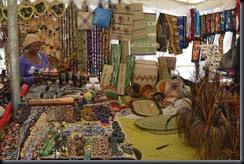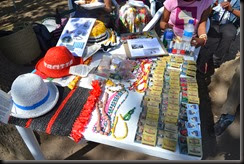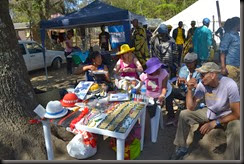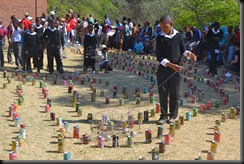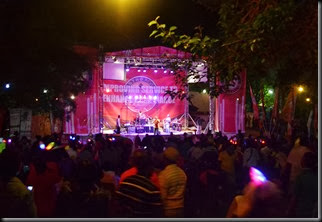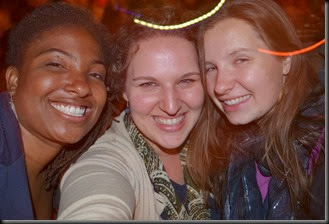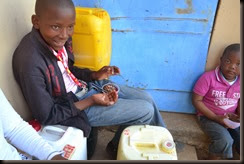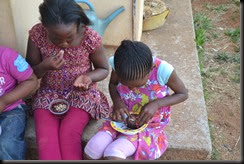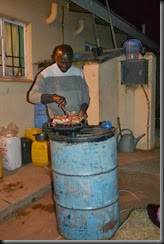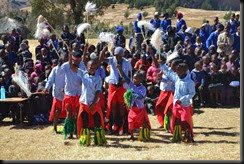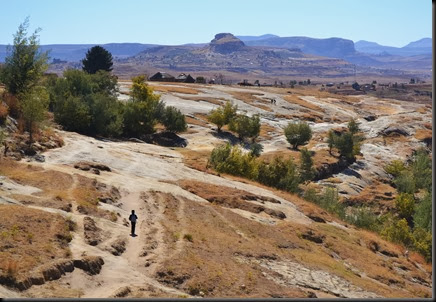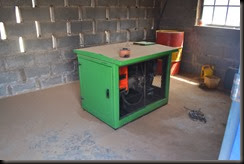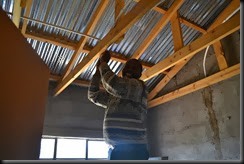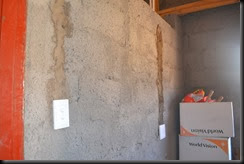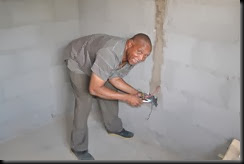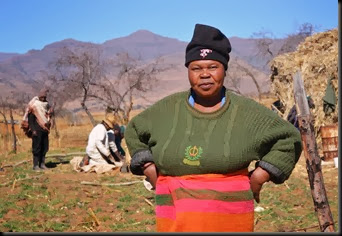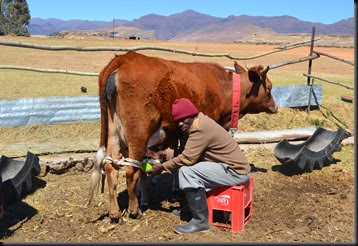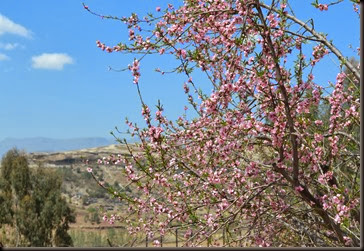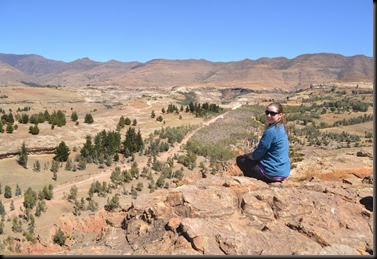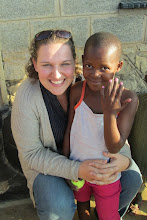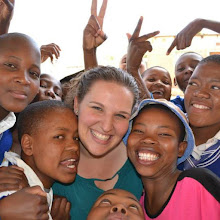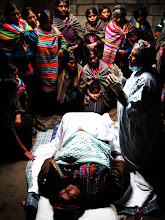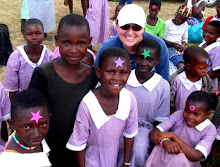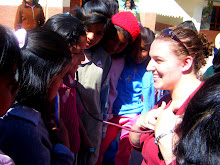Wednesday, December 11, 2013
One Year in Peace Corps
It has been...
- 426 days or 14 months since I arrived in Lesotho
- 364 days or 1 year since I took my Oath of Service and joined the US Peace Corps.
- 8,205 miles away from my home and family
- 1 new language, Sesotho
- 3 new countries travelled (Lesotho, South Africa, and Swaziland)
- 2 Basotho families (I'm a Mothobi in Berea district, and a Qoaqoa in Butha-Buthe district!)
- 2 rural villages/Basotho communities (Makola during training, and Ha Selomo since becoming a PCV)
- 1 school (I love Linokong High School!)
- 326 students or 7 classes taught
- 14 awesome work colleagues
- 4 school quarters
- 1 Young Women's Group
- 1 English/Debate Club
- 1 "Write On!" Creative Writing Competition
- 15 short stories for my Basotho Youth Book Project
- 1 inspirational GLOW Camp (with 189 awesome young women!)
- 35 books read
- 1 broken Kindle (and 1 subsequent nervous breakdown! Ha!)
- 2 Peace Corps Committees (Volunteer Action Committee, and Gender Equality Lesotho)
- 4 Global Development/HIV or Teacher Training workshops attended
- Thus, 4 opportunities to take hot showers!
- 9 trips into the capital city, Maseru
- 4 trips to the PC Medical Office, and 1 to the hospital
- 1 bout of tonsilitis, and 1 of the flu virus
- 2 new scars (1 burn on my left wrist, and 1 one cut on my right knee)
- 2 charcoal water filters
- 3 trashed/tattered pair of shoes
- $300+ in postage for packages from home (Thanks, Mom!)
- 5 inches of new hair (since shaving my head 13 months ago!)
- 22 new freckles or sun spots
- 1 thatch roof repaired
- 4 garden plots
- 1 cat + 1 kitten
- 2 chickens butchered
- 1,200+ km hiked around Lesotho
- R460 in cheese
- 3 bottles of pepto bismal, and 1/2 a box of anti-diarrheals
- 3 dead rats/mice in my house
- 1 more birthday passed (which I share with my awesome friend and fellow PCV, Kim!)
- 2 trips to visit my wonderful friend, Makabelo, and her family
- 15km traveled down the Usutu River in Swaziland (and 4 dunkings in crocodile-infested waters!)
- 5 Basotho funerals attended (and 2 missed at home)
- 4 important family events missed (1 wedding, 1 retirement, 1 college graduation, and 1 high school graduation)
- Countless new Basotho friends and neighbors!
And it all adds up to ONE absolutely price-less adventure!
With Love from Lesotho... -Mary E.
Saturday, November 23, 2013
You Know You're a Peace Corps Volunteer When...
1) You spend an inordinate amount of time trying to convince people that you don't walk around with pockets full of candy.
2) It freaks you out when you hear Basotho refer to you by your American name.
3) You can successfully bucket bath with less than 2 liters of water... And feel perfectly clean.
4) You walk everywhere... And chances are, with a giant overloaded backpack.
5) You can determine the season based on your tan lines and the type of insects living in your house.
6) You visit other PCV's and find yourself jealously admiring their latrine.
7) You think refrigerating eggs, cheese, and mayonnaise is madness.
8) You can't remember that foreign language you took for 5+ years in high school and college... And when you try to, it always comes out in Sesotho anyway.
9) You understand that your feet are the most important part of your body to take care of.
10) You would do unspeakable things for a margarita.
11) You hoard trash to use as teaching aids and classroom supplies.
12) You'd rather shave your head than haul the water to wash your hair.
13) Starting your day at 5am and going to bed at 8pm no longer seems ridiculous.
14) A wild Friday night means using the last of your precious computer battery to watch an episode of Modern Family.
15) Your social life ends when your the solar power for your phone battery runs out.
16) You can sing along to famu music.
17) You are willing to physically fight bo-Me for control of the window on a taxi.
18) You'd be willing to, and occasionally do, travel more two hours on public transport just to buy cheese.
19) You think it's weird if your personal space ISN'T violated while on public transport.
20) You love rain, and talk about it incessantly.
21) You see a white person and want to ask them where they're from and why they're here.
22) Writing letters by hand is a legitimate and highly utilized form of communication.
23) You can't imagine what you used to need unlimited WIFI for.
24) You have full conversations with your cat.
25) You lie awake in bed at night during thunderstorms, praying lightning doesn't set your grass roof on fire.
26) You think rental cars are for travelers that are pansies and can't handle public transport.
27) People speak to you in English... You respond in Sesotho.
28) You think the person who invented the shower doesn't get enough credit for his contribution to humanity.
29) You find yourself peeing and bathing in a bucket, while other PCVs are in the same room.
30) You eat papa and morroho with your hands.
Tuesday, November 19, 2013
It's not WHERE you travel, it's WHY you travel...
Yet there was something to his argument, that I couldn't quite put my finger on...
It made me think about many of my friends, family, and acquaintances that speak proudly about their global adventures backpacking around Europe, taking cruises to the Caribbean, or touring the "Wonders of the World."... While fun and interesting, these are not, in my opinion, accomplishments. Now I say that, fully admitting that I have also spent my fair share of time on sandy beaches; backpacking around hostels in Paris, and London; and taking touristy photos atop Machu Picchu or in front of the Eiffel Tower. I am absolutely just as capable of being an obnoxious, vacationing tourist... In fact, I love playing the tourist, on occasion.
But those aren't the trips I boast proudly of. (After all, anyone with enough money and a healthy appetite for adventure is capable of that kind of luxury travel.) That's because...
When I think about my 2008 trip to Peru, I don't think about Macchu Pichu... I think about a morning break I took one day, outside the makeshift medical clinic I had been working in. We were in a tiny, remote village, whose name I don't even remember, somewhere above 15,000 feet in the Andes Mountains. I remember sitting down with a group of Quechua women that were waiting in the impossibly long line outside the clinic. I recall the feel of the rough alpaca wool they placed in my left hand, along with the hand-carved wooden spindle the went into my right. The area filled with boisterous laughter as they watched me try to master the impossibly complex set of motions required to spin wool into yarn by hand. I watched their faces light up in disbelief at the 20-something year-old woman who didn't know how to perform this seemingly simple task. I remember not knowing the language, and simultaneously realizing that it didn't matter. Later, as I continued to watch their experienced hands fly in mesmerizing motions, a little boy in a light blue sweater found his way into my lap... I still have his picture tucked away somewhere. His tiny, dirty fingers gently pawed at a curl of my hair; exploring, touching, memorizing this foreign texture and person. When I think of Peru, I think of that morning.
And when people flash pictures of grand cathedrals in Europe, I think about the times that I've felt closest to God while traveling... In particular, I think of the day I spent in a sweat lodge in a little village outside Xela/Quetzaltenango, Guatemala. Not a grand cathedral, but just as awe inspiring... I can still smell the overwhelming aroma of the eucalyptus leaves, dipped in boiling water and then used to gently beat the naked bodies inside. I recall the group of women who'd brought me there... Quiche-speaking Mayan midwives, whose holistic relationship with Mother Earth, wisdom passed down through centuries, made childbirth seem more like a euphoric expression of the body than a biological process, wrenched in pain. I remember the heaviness of the air inside. The transcendent state of being brought on by their soft meditative chanting and rhythmic swaying. I remember being overwhelmed with a sense of something more than myself... Perhaps God, nature, or something entirely unknown. It was one of the first times I truly understood that human beings can express their spirituality and humanity in so many vastly disparate, yet shockingly beautiful ways.
When I travel, I do so to learn, absorb, and embrace openly... When I leave, I go with humility, leaving behind as much of my own needs, desires, and preconceived notions as possible. When I return, I am always somehow less American, yet more human. I don't travel for my own pleasure, although I do find it pleasurable. I reap an inordinate amount of knowledge and happiness out of my travels, but those always seem to come incidentally in the quest for something more... Despite my initial intentions, I always receive more than I give.
Those are the things that truly make me proud... They make me proud because it's not where you travel, but why you travel that matters. It takes courage to leave America and travel to a foreign country; to leave behind your safety net. But how many people who travel REALLY do "leave" America... How many people are guilty of going to a new country, but only speaking English? How many times have I seen tourists frequent a McDonald's while just across the street sits a local deli, restaurant, or street stand run by a local business man or woman? How often do people visit a culture, but never take the time to talk to someone who actually lives there? Find themselves in a new city, but never walk down a single street not outlined in their travel guide? Yes, it is courageous to board a plane, but it is something more to leave behind your comfort, ego, and own culture to truly embrace a new one. It is wonderful to want to learn about a new culture, but selfish to take without contributing something in return to the people you learned from.
Travel can be so much more, if you focus on why you go instead of where you go...
With Love from Lesotho... Mary E.
Voices of Basotho Youth
As anyone who has ever been a PCV can tell you, the idea of putting such an intense array of emotions, memories, challenges, and joys down on paper can be a daunting task. Seemingly impossible, in fact. I journal and blog, compile little snippets of my thoughts and experiences, but the ability to convey an overall sense of my journey in Lesotho still escapes me. I wonder if I'll ever be able to describe it.
Yet the longer I've worked with youth in Ha Selomo, the more I've come to realize that I am telling the wrong stories. If I want to truly convey my own experience in Lesotho, then the story isn't just my own... It also belongs to my kids.
My work and life in Lesotho seems so intimately entangled and invested in the lives, futures, and dreams of my kids (both at school and in my village) that their experiences have, in a sense, become my own. Their problems are what keep me awake at night. Their successes are what I celebrate. Their sorrow and loses are what I mourn, and then struggle to come to terms with. Their world view is the one that I am attempting to learn from and understand. It took me a while to realize that theirs are the stories that I want to help send into the world... Theirs are the voices that are rarely heard or validated.
So this past August, I began collecting short stories, poetry, and art work from youth of all ages, in the hopes of eventually creating a publishable book! It's my small attempt to encapsulate some small part of what it means to be a young person in Lesotho... To, rather than leave a legacy in Lesotho, allow my kids to leave one for the world.
And it has turned out to be a greater blessing than I ever could have imagined...
For one, it has given me the opportunity to get to know so many youth, that I might otherwise never have spent one-on-one time with... Some of the writers are my high school students, but others are young adults, fresh out of school and facing an uncertain future and impossible job market. Others are primary school children, evidence that languages and cultures may differ but the joys and delights of childhood are universal. Some are struggling through impossible situations: family's with no money for food or young women in abusive relationships. Children who can never say aloud that AIDS robbed them of their parents, but for whom whispers still follow them everywhere. A 16 year-old mother, who has already known the grief of burying a child; a young man forced to herd animals, rather than attend school.
The intimate thoughts, stories, and secrets they have placed in my trust, have nearly instantaneously endeared every single one of them to me, in a way I'd never anticipated. As I watch them write, think, and struggle to find words (often in a foreign language) to describe their experiences and world view, I can see them also desperately searching to give voice to something more important... Each story is absolutely unique, both in topic and perspective, but they all ring of a common message, to my ears:
They say, "Don't forget us. Don't forget us... We also belong to this world."
I know that these youth have something to say that deserves to be celebrated, forgiven, or merely acknowledged by this world... And that is all the motivation I will ever need.
With Love from Lesotho... Mary E.
The Cost of "Bad" Development.
I shook my head, exasperated to find myself, yet again, defending the merits of a culture, not even my own. "It's important." I reasserted stubbornly. "Lesotho is the ONLY country in the world where Sesotho is taught and spoken... If you don't teach it to your children, people will stop speaking it. It will disappear, and with it, an important part of YOUR Basotho heritage." Laughter rolled across the staffroom again, at my apparent naivete. "Heritage?!" They railed unanimously. "What do we care about heritage? We need money! The people are starving; working too hard just to be poor! The only thing we need is money..." Ntate Musi advocated. "You say that, and I understand... But being "developed" does not have to mean loosing the old ways. Why can't your children have both?" I reasoned, trying to bring them all around. It seemed fruitless... "We can't have both though. Sesotho is no good... It only holds us back. We have to be like the Americans and speak English!" Ntate Musi continued admiringly.
I felt my heart sink a little bit. THIS, I thought, is the problem with globalization.
You see, when I first joined Peace Corps, I did it with an inordinate degree of apprehension. Not because I questioned my ability to learn a new language, or live without electricity, but because I questioned (and still do) the ethics of development work.
Working in the global development sector is conflicting for me. It's difficult because I'm an anthropologist; I value cultural difference and preservation. I think that there are some things in the world which, by their very nature, defy monetary value... Languages; knowledge of indigenous plants and animals; diverse ways of understanding and experiencing the human body, endless forms of expression through song and dance; knowledge of medical practices; unwritten histories, disparate ways of viewing the world and the role of human beings in that world. The value of these things to the human race, in my opinion, could not possibly be over estimated.
Unfortunately, in societies where poverty overwhelms and death lurks in the shadows, indigenous languages, customs, and unique world-views are often sacrificed at the alter of "progress." At the time they seem a small price to pay for health, a full belly, and physical comfort. So it's not surprising that, so often, the very peoples whose cultural heritages are being lost, fail to truly assess the cost of globalization, until it's too late. Development becomes incorrectly associated with being "less traditional" and "more western."
As a teacher, I see it every day... My students dream of cars, electricity, and "sharp" clothes, as they say. They aspire to careers that will give them brick houses in the capital city, Maseru... And the careers that get them there matter very little to most. When I ask my Form D's what they want to be when they grow up, they often reply, "Maybe a nurse, or engineer. But if not that, then perhaps a teacher or travel agent... Whatever I can." A career is not a pursuit of passion, interest, talent, or even moral obligation. It is solely the product of opportunity... A necessary step to a life they deem to be more desirable, modern, and, by association, "westernized." They view education as a mere means to escape.
This means that, for many Basotho, village life is increasingly vilified as undesirable and archaic. Educated Basotho gasp in shock when I tell them I live without running water and electricity. "But why?!" They say with genuine confusion. "Don't you want to move to town?!" "Not at all!" I answer, laughingly. "I absolutely love my village. There is no place else in Lesotho I would rather live," I tell them honestly. They just shake their heads in disbelief. My skin-color, sun-glasses, and well-tailored clothes mark me as the ultimate conundrum... A westerner who had the life they desperately dream of, and gave it all up gladly for a thatch-roofed rondaval in a rural Basotho village.
For me, this resistance to, and even lash-back against a "traditional Basotho lifestyle" is a sad product of globalization, and an inevitable sign of cultural loss. It saddens me, because it is not necessary.
While we anthropologists may fight for the preservation of culture, most of us understand that "preservation" does not necessarily mean inhibiting "progress." In fact, any good anthropologist would tell you that the concept of "freezing" a culture in time is not only impossible, but absolutely naïve. No culture is static. Rather ALL cultures are constantly in a process of evolving and adapting to changes in political structures, environments, climates, religions, technology, ect. And this isn't a bad thing; it's inevitable.The sad part comes when that evolution of culture leads to it's own destruction or loss. When cultures dissipate and are lost to history because people cease to remember, celebrate, and practice them into existence.
THIS was my fear as a Peace Corps Volunteer... When I joined Peace Corps to be a teacher, I was worried that by teaching IN English, and with an inherently western perspective, I would inadvertently be contributing to the slow demise of Basotho culture.
After a year in Lesotho, however, I understand more than ever, that it doesn't have to be that way... Although it so often does, development does not have to destroy culture. It's possible for a country and society to maintain it's own unique heritage and world-view, but only when it dedicates itself to forging a path ahead that specifically protects such legacies. Doing this requires that indigenous peoples be the makers of their OWN future. They have to be involved in their own development as the "designers," rather than just the menial office staff or manual labor. It requires that cultural practices and traditions are evolved and incorporated into modern society... Whether through cultural days in schools, or new interpretations of rite of passages, as when many Basotho choose to have a "white wedding" but ALSO pay labola (the bride-price). It requires tolerance and respect on the part of neighboring countries and political powers... International allies who understand that being different does not make a society primitive or unevolved. It requires education performed from the viewpoint of that society; education that emphasizes what is relevant to those people. For example, Religious Studies, Sesotho and Agriculture are all VERY important components of the education system in Lesotho. But more than all that, there has to be a sense of pride and identity that is maintained in the minds and hearts of the people themselves... A respect and tolerance for the "old ways; an understanding that being "developed" doesn't have to mean being "American" or being "British." The consciousness to recognize inherently western perspectives in their midst and resist them. This discrete invasion of western thoughts and influences, over time, removes the ability of diverse cultures to formulate their own world views... And along the way, something truly valuable is lost to the world forever.
Everyday I walk a delicate tight-rope, trying to balance my own pride in my culture and country, with a desire for the Basotho people to resist the overwhelming force of western influence. I can only hope that, with enough humility and introspection, I will leave Lesotho having done more help than harm to it's cultural legacy. I hope that by teaching my girls self-confidence and to think independently, they are learning to forge their OWN ideas about what it means to be a strong and liberated women- even if those ideas often conflict with my own. That by giving all my students the skills to go forth and be lawyers, doctors, and engineers, they will return to their country and lead it for themselves. That through my book project and friendships, I will spend more time listening than I do talking. That by showing my colleagues the honest truth of America, rather than allowing them to keep it on a pedestal as the "nation without flaws," they will understand that there is no secret path that leads to wealth and power... It's a future they can and should forge for themselves, according to their own desires for their country.
Because only one thing is certain in this day and age... Development will happen. I only hope that, as it does, the Basotho people will be the ones independently and confidently leading the way for this small, but incredibly unique and culturally-valuable society.
With Love from Lesotho... -Mary E.
When you look in your closet...
When you wear Levi-Strauss, think of an over-stuffed bus transporting villagers home... From the mindless labor of a mechanical factory to the peaceful tranquility of a tiny mountain village. From the epitome of globalization to the peace and seclusion of a tiny, mud-walled rondaval in the Maluti mountains. Imagine the hands your favorite blue jeans started in... The Mosotho woman who could never afford to wear them, but who's family will eat papa and morroho tonight because you can.
When you think of Walmart, try to conceptualize the multi-national corporation. The power and money that links our countries. Think of interdependence... A Basotho labor force simultaneously exploited and empowered. People made richer, while being irreparably chained to poverty. Think of inequality and opportunity. Intimately linked; impossibly complex. Brand-name shoes for a full belly. Cheap clothing for a child's education.
When you look in your closet... Think of Lesotho.
With Love from Lesotho.... Mary E.
2013 Morija Cultural Festival!
The week of Spring Break, during the first week of October, also happened to conveniently coincide with the Annual Morija Cultural Festival! And since Zoe and I were staying with Makabelo and her family in the village of Matsieng, about a 15 minute drive away from Morija, we took full advantage! It turned out to be a great opportunity to get together with some amazing PCV friends, view Basotho arts and crafts, and enjoy traditional Basotho cultural dances and song!
Lovely PCV Ladies! Hair washed, legs shaved, clothes clean, no bulky backpacks… We almost look like we could be tourists! HA!
(From L to R): Jiggetts, Zoe, Me, and Rachel
We spent the afternoon exploring craft vendo rs from Swaziland, Lesotho, South Africa, and Botswana… And even got the chance to sample some delicious grubs and bugs from Botswana! Yum!
rs from Swaziland, Lesotho, South Africa, and Botswana… And even got the chance to sample some delicious grubs and bugs from Botswana! Yum!
Shopping is a very dangerous pastime of female PCVS…
So many beautiful crafts; so little money! Ha!
One of our PCV friends, Jiggetts, had set up a booth to sell handmade jewelry and crafts to help raise money for a community project to put a well at her school! We were all too happy to come keep her company and shop a little!
We also got the chance to see some cool activities and events! This was the toy car race! Village kids across Lesotho are shockingly skilled at making these toy cars out of old clothes hangers and tin cans! It was very cool that some got to show off their ingenuity and engineering skills at this competition!
At the end of the week, Rich (Makabelo’s husband) graciously offered to stay home with the kids, so we could have a rare and coveted “Girls Night Out” to attend the annual “Music of Southern Africa” concert! The music selection ranged from classic Basotho famu (ie. Not my favorite! Ha!) and gospel to jazz and hip-hop! We were joined by a bunch of other PCVs, and had a blast dancing til 3am in the morning!
 2013 “Music of Southern Africa” Concert in Morija, Lesotho!
2013 “Music of Southern Africa” Concert in Morija, Lesotho!
With Love from Lesotho… –Mary E.
It’s a Beautiful Life…
I have a truly beautiful life… And while most people may think that has something to do with living a real-life adventure in Lesotho, it’s so much more than that… I have a life full of truly beautiful people.
Over our school “Spring Break” this past October, I decided to go spend the week with one of my favorite people in all of Lesotho: my amazing friend, Makabelo. Her family graciously opened their home to Zoe and I for the week, and we had an absolutely amazing time! We spent all week cooking with her kids, enjoying a braai on Lesotho’s National Independence Day, and learning how to make patterns for and sew traditional seshoeshoe dresses!
Lily (6 y/o) was an amazing help when Zoe and I cooked Mexican food for dinner one night! Left: Rolling out homemade tortillas! Right: Zoe and Lily with lots of yummy goodies for Spanish rice!
CUPCAKES! Zoe and I surprised the kids by showing them how to decorate cupcakes with icing and sprinkles! We love when sharing American culture can be edible!
 Makabelo is an amazingly talented seamstress, and taught us some of her dress-making tricks! Zoe and I brought some gorgeous west-African print fabric and got to make new skirts that weekend! Yay!
Makabelo is an amazingly talented seamstress, and taught us some of her dress-making tricks! Zoe and I brought some gorgeous west-African print fabric and got to make new skirts that weekend! Yay!

We had WAY too much fun playing around with the kiddos!
Peace Corps Volunteers…
Spreading bad dance moves around the world…
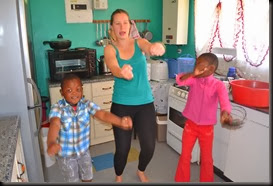
Since the 1960’s! HA!
Makabelo’s husband, Rich, is simply beyond fabulous… We had a delicious braai to celebrate our first Lesotho National Independence Day in country! It was complete with delicious grilled chicken, our favorite traditional foods, wine, and truly wonderful Basotho friends! Zoe and I felt right at home… It made me appreciate how far we’ve come in this past year, and how lucky I feel to be living in this incredible country, with such amazing friends!
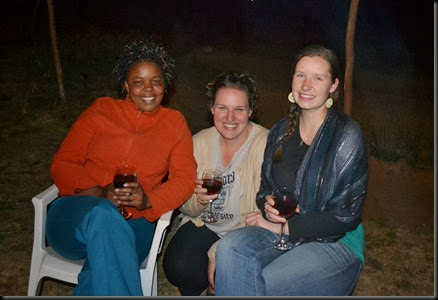 I can’t imagine Lesotho without these ladies!
I can’t imagine Lesotho without these ladies!
Makabelo, Me, and Zoe
With Love from Lesotho… Mary E.
Friday, November 8, 2013
Pula ea tla.
And then you hear the villagers... "Pula ea tla!" They warn, ushering cattle down from the mountains and children into rondavals. Dust storms whip the world into a violent fury, and then.... Silence.
Pula ea tla. Pula ea tla. Pula ea tla.
The rain is coming.
And suddenly... It releases.
Pula ea na. The rain is here.
Secretly, somewhere in an open field in the highlands of Lesotho, young girls tear off their clothes in joy, leaving only parched bodies and dry earth to soak in the rain. They scatter across the barren field, reveling in the wind and rain, that always promises to renew. Then one starts to jump in rhythm... A beat. A tradition. A call to join. They jump high for life. For rain that promises a new beginning... A future.
And you through the wind and rain, you can hear them... Hear them, as the jump and sing:
"Mankokosane! Pula ea na! Re tla hola neng?"
Mankokosane! The rains are here! When will we grow up?
They ask. The rain answers.
With Love from Lesotho... -Mary E.
Friday, November 1, 2013
Waiting.
Form B, Pitseng High School
Leribe Dirstrict, Lesotho
Now I sit in solitude waiting breathlessly
Every time I exhale my frost
Bitten breath would come visible before me
Fogging up the view of distance
I could not take any chances
So I stopped breathing
Hoping to see you return
But in turn I suffocated
Dying in my own skin
Just waiting
Being raised by the Word, I treated
You like a prodigal son
When you said you wanted to leave
I gave you a suitcase
I opened the door and watched you walk away
I sighed and heard the soft whispers
Telling me where you had gone
To a place you had been
To a past you had seen
To a place you had been
To a past you had seen
Promising no return
Yet I waited breathlessly
Time passed and sucked life out of me
Then those soft whispers
Became tiny molecules of my memories
Memories of your smile and laughter
Memories of my last goodbye
So I breathed and I exhaled
And breathed you away
The above poem was a submission for my "short-stories from Basotho youth" book-project.
Education for All!
In September, Lesotho celebrated “Education For All!” day! It was a day marked by school gatherings, debates, traditional Basotho song and dance, speeches, spelling competitions, choral performances, and lots of fun activities! So my school, Linokong High School, hiked up the plateau to Ha Selomo Holimo (Upper Ha Selomo) to join up with our sister school, Linokong Primary School! It was so much fun for me to get to see so many of my village kids at THEIR school…. And they put on quiet the show! Here are just a few pictures from the day’s events!
Cultural dances and events are an important part of the education system in Lesotho, especially at the Primary School level. Here, a group of boys from Linokong Primary School perform a traditional Basotho dance for bo-Ntate (men).
The Linokong Primary School Girl’s Net-Ball Team! Net-ball is a Basotho sport, similar to basketball, played by girls.
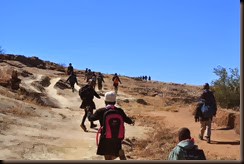
A long walk home…
With Love from Lesotho… Mary E.
The Meaning of Success.
While my parent's did heavily reward and emphasise doing well in school, I can't let them take all the blame. I was just as much the culprit of my own self-obsession with perfection. Getting a 98% on a Calculus exam, or having a 3.989 GPA, was just never quite good enough for me. I have always loved school- and clearly still do- but I'd be lying if I said that my success in academia has been the result of sheer talent or passion for the subject matter... I am simply a driven, Type A, over-achiever, who craves approval. A large portion of my self-worth is, perhaps wrongly, tied up in how good I am at what I do.
So you can begin to imagine the difficult crisis of conscious I faced when I my own success as a teacher was suddenly intimately tied to the academic success of 150+ Basotho teenagers in rural Lesotho... Their success hinged on mine as a teacher, and I never fail at anything. But I sure did at this...
Last January, I dove into my first year as a teacher with the same characteristic vigour and passion, I apply to everything I do in life... Because, as we have established, I can't do ANYTHING halfway. So I did everything possible to succeed in my new role as an educator: I used interactive teaching techniques, catered to oral learners with rhythmic "call and response" techniques, and created hands-on visuals and experiments (which isn't easy when you work at a school with no resources!) to make my classes fun! I implemented positive reinforcement and did away with corporal punishment. I created clear expectations, and predictable daily rituals. I rewarded questions and encouraged classroom engagement with "kilo claps" and hilarious warm-ups that had me dancing around with my 8th graders pretending to "Eat! Eat! Bananas!" You name it, I tried it.
Then mid-term exams rolled around... And my poor kids failed, and failed, and failed.
It was absolutely devastating for me. With their failure, I felt that I had failed, too. Worst of all, however, I'd failed THEM. They needed and deserved an incredible teacher, and in my eyes, my best simply wasn't good enough. For days, I poured over grade books, marking memos, lesson plans, and past exams... I tried desperately to make sense of where I went wrong. What could I do differently to get them to succeed?
I came up with a few possibilities, but answers to my own question were few and far between. Yet when I returned to school after winter break, I did so with a renewed energy... I was ready to throw myself headlong into the throes again... This time hoping maybe something would miraculously change. And then... Sometime in the midst of my first week back to school, I did notice miraculous changes: Montsi, a shy boy in the back corner of my Form B Maths class started coming to ask for help with homework after class. Sibongile, who has never shown an interest in Science, asked an awesome and insightful "real world" Physics question that I didn't know the answer to. Timid and quiet Mathabi volunteered to solve a triangle problem on the board in Form A Maths. Ntsoaki and her "too cool for school" girlfriends asked me to plan a Young Women's Group meeting on "Peer Pressure and Sex." Thembekile stayed late to tell me about financial problems at home, and Sebolelo confessed she wants to be an Engineer, like me. And that's when it hit me...
When I asked "What could I do differently to get them to succeed?" I should have been asking "What does it mean for them to succeed?"
As a child of middle-class America, success had always been quantifiable and comparable to me. My apparent successes and self-worth had always been summed up in a grade book, with careful columns of numbers and letters... With red pen marks, and brightly colored stickers. I had tried to apply the same measure of success to my students here, but that was utterly unfair and short-sighted... Perhaps akin to using a ruler to measure a liter of water. It simply isn't a good measure of their "progress." Okay, yes... Perhaps they don't understand how to add fractions. But the sheer fact that Mathabi was brave enough to come up, and solve a problem in Maths was a HUGE success in my eyes, and more importantly, in his. It just took knowing my students as individuals for me to see the tiny miraculous changes occuring around me every single day.
My kids have the deck stacked against them...You name it, they face it. Poverty, HIV, language barriers, cultural norms, stereotypes about educated people, hunger, physical distance from school, financial problems, and lack of familial support to attend school. Their mere presence every day, for some, is a massive triumph of the human spirit; evidence that they desire to become better and attain more in their lives. It took me a while to recognize that. To let go of my scale for "what is success" and embrace a new idea of what success might look like for them.
It's possible (and even probable) that most of my students will never go to University or even graduate high school. They may not become lawyers or doctors. My girls may, willingly or unwillingly, become teenage brides and young mothers. One day down the road, however, it's possible that one of them will advocate that their partner use a condom, because I taught them to have self-confidence. Perhaps they'll speak English to their children, or become father's that sacrifice other luxuries to send their kids to school. Maybe they'll remember that science can be fun. Perhaps they'll find themselves asking "why" or "how" when they see a rainbow arch across the sky.
And maybe.... Just maybe, that is the meaning of success.
With Love from Lesotho... -Mary E.
Becoming Grandpa.
Beneath the deafening silence and pensive looks, Grandpa hides a genius that rifles most of my generation (not to mention his.) He's deeply spiritual, a veracious reader, and wise to the core. Just when you've written him off as either deaf or completely uninterested, you'll hit the right witty remark and his face will break into a giant smile that tickles everything, right down to his slightly off-kilter beard.
The last of a generation, he hails from a time and place that seem a distant memory in American history. As a boy, he lived through the Great Depression, grew up on a self-sufficient farm in rural Virginia, went to school in a one-room school house, and knew what it was to work to survive. He served our nation in the US. Army, was the first in our family's history to earn a doctoral degree, and has spent more than half a century married to the love of his life, my Grandma. He comes from a generation that valued family, community, and doing the right thing, no matter the cost. They don't make men like him anymore.
Or do they?
In this corner of the world, Grandpa bears a striking resemblance to many of my Basotho neighbors, including my host father, Ntate Bereng Qoaqoa. Ntate Bereng, whom my Basotho family affectionately calls "Baba" (meaning "father" in Zulu), is a subsistence farmer who's close connection and intimate reliance on the land still baffles me. He was born and raised in the village of Ha Selomo, just like his father and his father before him. Much like my own family, Ntate Bereng's ancestors fought and defended the land that we now call Lesotho against the Dutch, and then the British. Here they call it "Basotho-land," and this hard-won, mountainous land is the core of this proud, yet peaceful, culture of farmers and herds-men. Grandpa and Ntate Bereng share a common devotion to hard-work, and a knowledge of what it is to struggle with and simultaneously love a piece of this earth. More often than not, I'll find Ntate Bereng sitting quietly after a long day of work, watching his 3 cows graze or the sun set. His quiet presence and patient nature reminds me daily that everything has a time, place, and rhythmn to it that can't be hurried.
In another striking similarity, Grandpa and Ntate Bereng also share an intense devotion to family and community... For Ntate Bereng (as with most Basotho,) this value is deeply rooted in Basotho culture, where there is little distinction between the two concepts. Villagers commonly address each other as ngoanes'o, meaning child of my mother (ie. brother/sister), and all men and women of childbearing age are called 'Me (mother) or Ntate (father.) Blood relation means very little as a distinction or attachment... The concept of "family" is fluid, and is often applied to people you care for or feel beholden to care for. In Ha Selomo, the villagers call me ngoanaka oa Ntate Bereng or Ntate Bereng's child. It's a family position I share with his biological children, grandchildren, innumerable nieces and nephews, and several close family friends. As the head of the family and an elder in the village, he cares for us all in the same way: feeding those without food, and willingly giving up his home, bed, and even chicken house when needed to support a member of his "family."
The loose interpretation of "family" in Basotho culture also means the term "orphan" has a very different connotation in Lesotho. There are MANY orphans in Lesotho, because there are many children who have lost their biological parent's (especially to HIV/AIDS.) Were you to ask a Mosotho, however, they'd tell you there is no such thing as a child without a family. That's why adoption is such a puzzling, bizare, and, quite frankly, rare practice in Lesotho. There's no need for a legal process to make a child a member of your family- They always were. Your neighbor's child might as well be your own. Everyone who has a village has a family.
I find myself thinking about Grandpa a lot in Lesotho. In part because I think it's ironic, yet oddly wonderful, that life seems to have a certain cyclicity to it. I sometimes feel as if, by living in Lesotho, I'm glimpsing the past... The America of my Grandfather's childhood. A time when family's worked hard WITH the land and each other to survive (as opposed to raping and pilaging it for all it's worth.) In Basotho culture, there's a kind of reverance and appreciation for the land. I see that influence in my Grandpa's love of nature, but I wonder if other Americans, who don't share my family's roots, have lost that kind of connection.
Lesotho takes me back to a simpler time... A time when schools had dirt floors and chalk-boards, and getting there meant an hour walk at sunrise "uphill both ways," as Granpa always said. When family and community mattered. When kids ran wild, and parent's didn't worry about safety. When not greeting a stranger on the road was rude, and time wasn't something to be measured and meticulously controlled, but appreciated and savoured as a gift.
I find myself becoming more like Grandpa... More like Ntate Bereng. My garden is my favorite place in village. Working in it- digging my hands into moist soil, sitting contemplatively for hours while Pina chases butterflies, watching a rock wall grow taller with my labor- is therapy and comfort. Good for my soul in a way that I hadn't discovered before living here. When I'm in village, time slows down... I leisurely wander over to the shopong, have time to talk to everyone along the way, and greet my neighbors by name. I enjoy the sounds of the herd boys singing to their cattle in the evening, and notice every sunrise and sunset. It's refreshing. The kind of world I want to live in.
It makes me think that maybe this isn't such a bad thing... Becoming Grandpa.
With Love from Lesotho... -Mary E.
"How's it going in Africa?"
I don't live IN "Africa," I live ON Africa... I live in Lesotho. For clarifications sake, Africa is a continent, not a country and it's HUGE! So much so, that traditional maps, like the Mercator Projection, do it no justice. Africa is typically depicted as being many times smaller than it really is, in relation to other countries. (The very interesting map link here may start to give you an idea of how BIG a continent it really is...
http://knowmore.washingtonpost.com/2013/10/27/africa-is-much-much-bigger-than-you-think/)
And it's size doesn't even begin to describe the incredible geographic, cultural, natural, and historical diversity found across this beautiful, but frightfully misunderstood continent. There are LITERALLY countless cultures and languages... An unimaginable plethora of music, dance, and storytelling traditions. My Basotho neighbors in Lesotho have about as much in common with the !Kung! of Namibia as I have with Pacific Islanders in Samoa. They live in different climates; they eat different foods; they have a different language; celebrate marriage, life, and death in different ways; and have entirely disparate belief systems and ways of viewing the world... There is no such thing as a static and wholly knowable "Africa."
So you can imagine how comical I find the turn of phrase, "How's it going in Africa?" It's a slip of the tongue. An unintentional slight that groups millions of diverse peoples into one melting pot. But it's a misconception consistently perpetuated by the western world, and it is unjust. It doesn't do justice to the beauty of people or the diversity of culture. It's a slight to the people of Lesotho, who fought long and hard to win their independence and maintain their cultural identity amidst the overwhelming influence of so many othercultures in South Africa. They deserve to be respected and appreciated as a unique and autonomous culture and government...
So now when people ask me, "How's it going in Africa?" I answer, with a knowing smile, "I wouldn't know... I live in Lesotho." :)
With Love from LESOTHO... -Mary E.
Wednesday, October 30, 2013
It takes more than money…
It takes more than money to pull off a successful development project… That has been my lesson in Lesotho. It takes patience, knowing the right people, understanding the needs and capabilities of a community, and getting the right kind of “buy in” from locals. Luckily, that was exactly the potent combination of circumstance and opportunity that I had by my 9th month in Lesotho.
My parent’s hometown church, New Monmouth Presbyterian Church, was gracious enough to donate $250 to my work in Lesotho early last year. What might seem a meager amount to some people in America has the ability to go a LONG WAY in Lesotho… But I knew that wasn’t enough. So I waited. The money sat in my account for months. I didn’t even tell my Supervisor or Basotho friends… I just waited til the right opportunity presented itself, and eventually it did.
In early August, one of my favorite colleagues, Ntate Masiu, sat down at my desk in the Science lab for a relatively typical Monday morning chat… The hot topic for that morning turned out to be a rant about how the school was usurping use of the Science Lab, by using it as an office space for the copier and computer, rather than a place for Science. As Math and Science teachers, we both agreed that we’d love to convert it into a more useable, student friendly space, but how? The problem wasn’t about physical space (after all, we had a new staffroom full of empty rooms), it was about access to electricity. You see, Linokong High School doesn’t have any. We use a generator to sparingly power the copier and computer, only when needed. Unfortunately, the Science Lab was the only building on campus that was 1) wired for electricity with outlets, and 2) was connected to the generator (in a separate building). So Ntate Masiu and I hatched a plan…
We surmised that IF we could put electricity into the staffroom, we could eventually transfer the school administrative offices/equipment into the staffroom…. Thus leaving the Science Lab free to be used for it’s intended purpose. He had a friend who was an electrician in the neighboring district, who we called, and after a little friendly chit-chat agreed to help us. I knew some local shop owners in the camptown… And we were off!
We gathered multiple supplies quotes within a matter of days, got a quote from the electrician, asked around privately for some bo-Ntate who we knew would be willing to provide free labor, and then I broke the good news… If the School Board would agree to give us about half the funds, I could guarantee the other half of the project funds! It was so exciting to sit down with my Principal and Ntate Masiu, to tell them about the funds… And do it in a way where I KNEW the project could be successful. Ntate Masiu was incredibly hands-on as Project Manager, and we already had everything lined up. All they needed money… And thanks to some incredibly generous people in America, I could provide them with exactly that!
Two weeks later, we’d successfully presented our budget and project proposal to the board, had been approved for the remaining funds, and were buying the supplies! It took 48 hours, 3 incredibly diligent workers, approximately R6000 ($600), and a big pan of brownies… But it was all worth it, when the teachers came back to school on Monday to a staffroom full of electrical outlets, lights, and switches.
The school’s generator which was being wired to run electricity to the staffroom.
The school staffroom (right) and the generator bldg (left, behind the truck)…
Lots of wires = lots of progress!
Ntate Masiu was HARD at work all weekend, but SO excited to be making it happen!
Horray for outlets and light switches! A rare sight in this village!
Our fabulous electrician, who was VERY excited about the prospect of ‘Me Limpho’s brownies!
View from the entrance to the staffroom building. Under construction and looking good!
In retrospect, the entire project was HUGE lesson to me in timing, and having full support from locals. As anyone who has ever done development work in Africa can tell you, everything turns out to take longer and be more complicated than you could ever imagine… But with the right people and timing, our project was completed in just over one month, and was a great step forward for the school and it’s students.
Rea leboha haholo, batho ba New Monmouth Presbyterian Church!
Thank you so much to the people of New Monmouth Presbyterian Church!
With Love from Lesotho… –Mary E.
Monday, October 21, 2013
What I Love the Most.
Yet last week made me ask myself... Why has Lesotho so drastically changed for me? When did living here become "my life" here, and not just some wild adventure I was on temporarily? What makes this suddenly so normal? What has made this place feel like home?The answer came to me when Lisa, one of the new trainees, asked me, "What do you love the most about living in Lesotho?"
The question gave me pause... There are so many things about this country and culture that I love. It seemed difficult to pick just one. But then I thought back to the beginning of August, the first time when I really felt like my life here was my own. When I could honestly say that I didn't feel like a "Peace Corps Volunteer" anymore... I was simply, 'Me Limpho, the funny lekhooa teacher who bakes brownies for staff birthdays at school, loves to work in her garden, and gets frustrated with her Form D class all too often. I felt like me again. Just me in Lesotho. This was home. And suddenly I knew what had changed everything for me...
"The people." I replied, with a knowing smile. "My favourite part of living in Lesotho has been having personal, real relationships with Basotho... They've changed everything for me." And I knew it was true.
I knew that was the key to my being "at home" in Lesotho because...
When I make brownies for "staff birthdays" at school, they aren't just for anyone... Most recently, they were for my friend, Chris, who will randomly start singing an R&B song, and then still pretends to be shocked when I don't know the American artist... Ha! He likes to show up at my desk with a mockingly serious face and exclaim, "Yo! Holla atcha woman!" Which causes us both to erupt into laughter because, aside from his skin color, he could not possibly be further from the African American stereotype he sees on TV and tries to emulate. Despite growing up absolutely impoverished, "a young boy with no shoes" as he puts it, he dreams of getting a PhD in Environmental Studies... I call him "The Professor," and it's a nick-name he wears proudly.
And when I say I love to work in my garden, it's because I never seem to be there alone for long... My boys, Makhoro and Morena, always show up to help me. Their English is fabulous despite only being in Standard 7 in Primary School, and they're both incredibly bright boys. We love to watch movies and eat popcorn on Sunday afternoons... Their favourite Disney movies are always the ones with animals. :) And everywhere Makhoro goes, he takes his 3 year-old little brother, Mohalaka in tow... It's absolutely endearing to see him be so patient and nurturing with his younger siblings (of which there are many!) I know he'll be an amazing and attentive father one day; a true rarity in a culture where child-rearing is a "woman's work."
And when my Form D's get rowdy and loud, I don't even have to turn around to know who the culprit is... "Likhapha! Stop talking!" I shout for the umpteenth time, utterly exasperated. Giggles fill the classroom, as a guilty yet knowing smile creeps across her face. And when we're in Math class, and I ask them to solve for the final numerical solution, I'll hear a steady snapping start... Like rolling thunder, it's quiet at first, until the whole class is snapping in rhythmn. "Human calculator! Human calculator! Human calculator!" they chant, echoing my desire for them to do the multiplication or division in their heads quickly, without a calculator. They are each individuals now... When Limpho got the chicken pox, I noticed her absence. When Thabo got married, I knew. When Thembie lost her father, I mourned with her. I know their families, stories, villages, and dreams.
Coming home to my host family every night, stopping to talk to 'Me Moipone on my way home from the shopong, chatting with the taxi driver, Ntate Sello, about his kids on the way to town, or sending my friend, Phepheng, home with homemade fudge for her grandmother, 'Me Mapuleng, makes my life here richer. It makes me feel connected, settled, and safe. Content in a way that I didn't have last year as a new PCV. Every day isn't exciting and new, but I belong here now. My presence is expected in village, and missed if I'm away.
It's normal, mundane, and predictable... But it's home (for now, at least.) And THAT is what I love most about Lesotho.
With Love from Lesotho... -Mary E.
Wednesday, October 2, 2013
Spring in Ha Selomo!
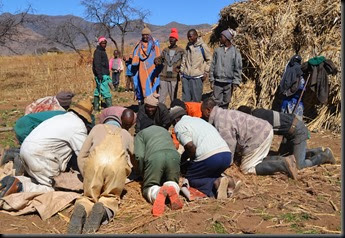
Bo-Ntate working together, with rhythmic chanting, to soften a cow hide for leather.
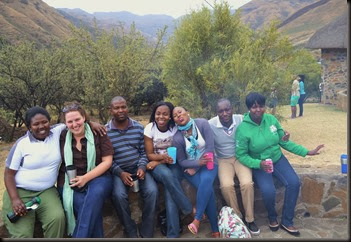
I am the luckiest girl ever…
I have the most AMAZING friends and colleagues!
(From L to R): Phepheng, Limpho, Nt. Masiu, Rethabile, Enie, Tseliso, and Mpati

HA! I think Ntate Musi was trying to make them eat MORE meat. :)
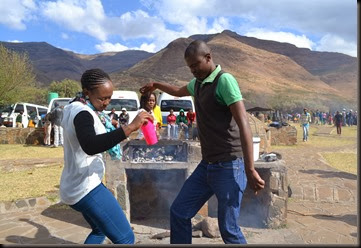
Typical outing to Tsehlanyane National Park… Dance, dance, dance!
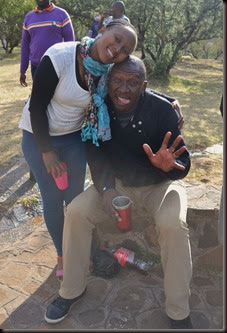
Enie and Rosky :)

We are Basotho… We LOVE to dance!
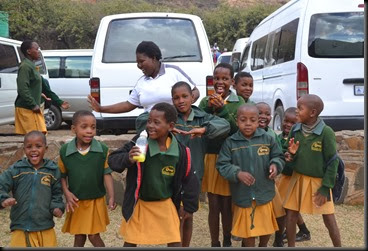
Pepsi is too cute… She found a bunch of Primary School girls and started a dance party! Ha!
Baba milking the new mama cow! Fresh milk! Yum!
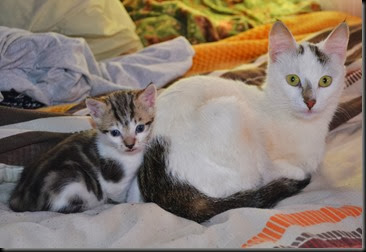
Pina and baby <3
The peach trees are back in blossom!
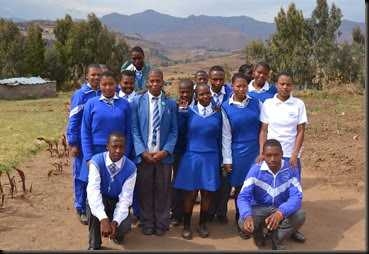 Linokong High School’s Class of 2013!
Linokong High School’s Class of 2013!
I’m going to miss them so much!
Zoe and I do love ourselves a good hike and a gorgeous view!
With Love from Lesotho… Mary E.
Wednesday, September 4, 2013
Ke rata bana ba Ha Selomo haholo!
When I first arrived in village, they were my enthusiastic "welcoming party." When I'm lonely, they are the little voices I hear ko-koing at my door. When I'm tired after a long day at school, they meet me at home with jubilant shouts of joy, "'Me Limpho! 'Me Limpho! Ho joang?!" When I'm confused or overwhelmed by cultural differences or customs, they patiently explain and teach. When I become jaded and overwhelmed by the immensity of the problems around me (poverty, hunger, HIV, gendered violence), they reassure me, with their innocence and awestruck wonder, that there is still plenty worth fighting for in the world. When I get lost or want to go exploring, they are my overwhelmingly enthusiastic tour-guides, proudly leading me through villages, over ridges, and across valleys hand-in-hand. When I get homesick, they fill my home with laughter, singing, and Beyonce dance parties! When I'm overrun by "back to basics" chores (hauling water, burning trash, gardening, washing laundry and dished by hand), they lend a helping hand. When I can't find the words in Sesotho, they translate. When I feel like I'm not making a difference, they remind me that I have the power to light up their faces with a mere wave or high-five. THEY are the reason I can live here with an unflappable sense of purpose and near constant smile on my face. They are MY Basotho kids.
Talk about ingenuity, right?!
Sometimes I can hear them just sitting outside my door whispering. Too funny!


